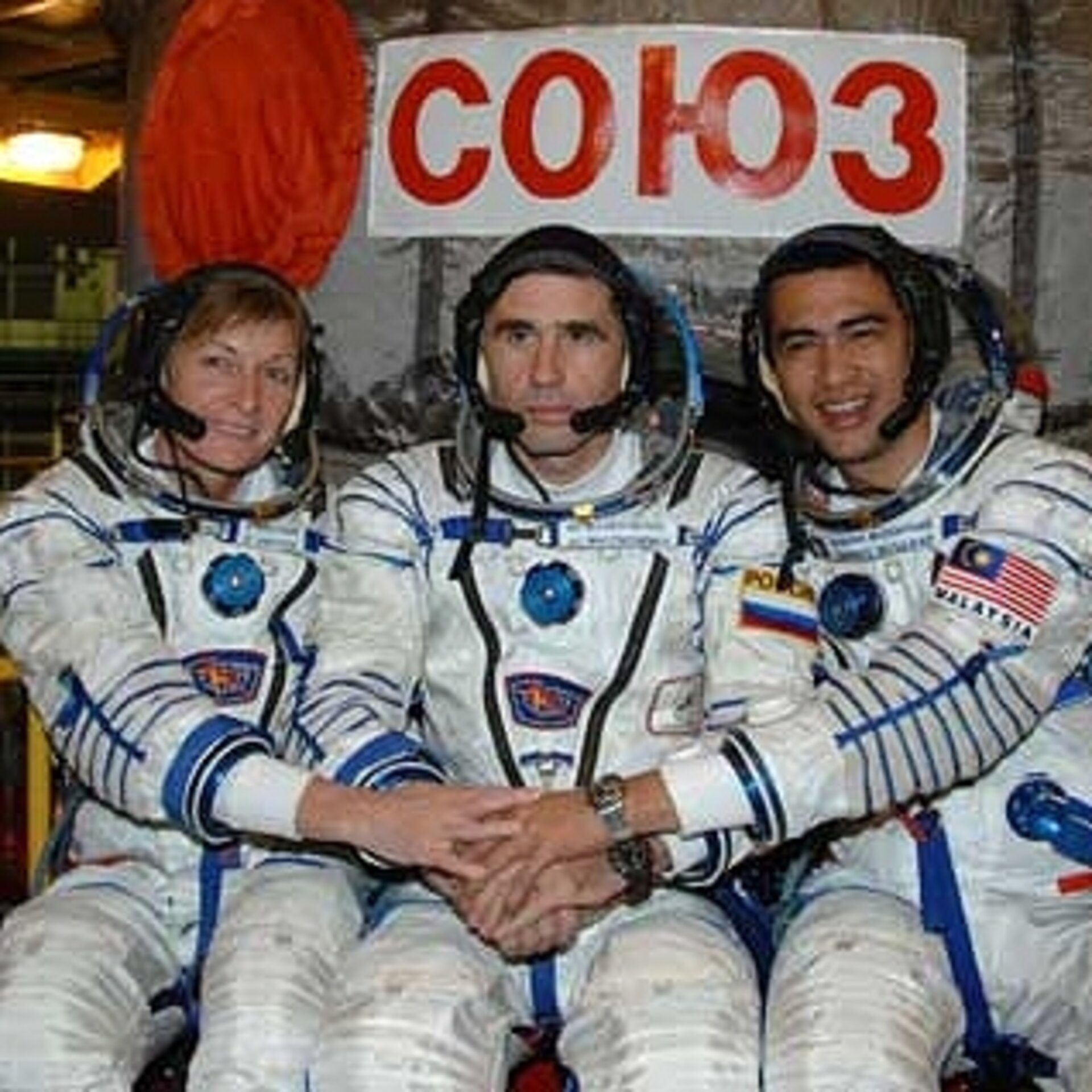Worshipping in outer space may sound like something out of a science fiction story—but it truly happened. Sheikh Muszaphar Shukor, Malaysia’s first astronaut, made history as the first Muslim to observe Ramadan fasting and celebrate Eid al-Fitr aboard the International Space Station (ISS).
Without gravity, without a fixed qibla direction, and under a strange rhythm of time—circling the Earth 16 times a day—he still managed to fast and perform the five daily prayers.
On October 10, 2007, Sheikh Muszaphar was launched into space from the Baikonur Cosmodrome in Kazakhstan. He flew alongside two other crew members: Peggy Whitson from the United States, who was the ISS expedition commander at the time, and Yuri Malenchenko from Russia.
They traveled aboard the Soyuz TMA-11 spacecraft, one of Russia’s capsules designed to transport humans to the space station.
Launched into Space During Ramadan

Sheikh Muszaphar was no ordinary person. He was an orthopedic surgeon and university lecturer from Kuala Lumpur.
Out of 11,000 applicants for the Malaysian Angkasawan program, he was selected to represent the country on this space mission. The program itself was a result of a cooperation between the Malaysian and Russian governments, which also included Malaysia’s purchase of 18 Sukhoi fighter jets.
Since his mission coincided with the holy month of Ramadan, unique challenges emerged: how to properly fast and perform prayers in space. On the ISS, the sun rises and sets 16 times a day due to its high orbital speed around Earth.
To address this, Malaysia’s National Fatwa Council issued a special guideline for Muslim worship in space. According to the guideline, prayer times should follow the local time of the launch site, which is Kazakhstan.
As for the direction of prayer, astronauts are advised to orient themselves toward the qibla as best as they can—since determining the direction of Mecca in a gravity-free environment is extremely difficult. Prayers may also be performed while seated or floating.
Regarding fasting, Sheikh Muszaphar was given the option to postpone and make up the fast after returning to Earth, but he chose to observe the fast as much as he could during his time in space.
Faith, Food, and Zero Gravity
During his eight-day stay aboard the ISS, Sheikh Muszaphar didn’t just carry out religious practices—he also undertook important scientific missions.
He conducted a variety of experiments, including research on microorganisms that cause tropical diseases, observing cancer cell growth in zero gravity, and studying proteins related to HIV vaccine development. He also used equipment from the Japan Aerospace Exploration Agency (JAXA) to measure radiation levels in space.
Interestingly, he brought specially packaged Malaysian cuisine with him. Among the items on his menu were chicken satay, tempeh, banana rolls, and ginger jelly. He celebrated Eid al-Fitr in space by enjoying traditional dishes from his homeland—a truly memorable and unique experience.
A Mission That Inspired a Nation
For Sheikh Muszaphar, this journey was more than just a space mission.
“Going to space is a small step for me, but it’s definitely a giant leap for all the Malaysian people,” he said before his departure. The moment became a symbol of pride and hope for many, especially Malaysia’s younger generation.
Dr. Mazlan Othman, then Director General of the Malaysian National Space Agency, stated that the mission had ignited a sense of national spirit. Sheikh Muszaphar’s presence aboard the ISS proved that a country like Malaysia could achieve remarkable success in science and technology—provided there is clear strategy and strong determination.
Returning to Earth with Stories from the Sky
Sheikh Muszaphar returned to Earth on October 21, 2007, after spending 12 days on his orbital mission. He came back with the returning ISS crew, including Fyodor Yurchikhin and Oleg Kotov from Russia.
From fasting to breaking fast while floating, Sheikh Muszaphar proved that there are no limits to practicing faith and pursuing dreams—not even among the stars.



















